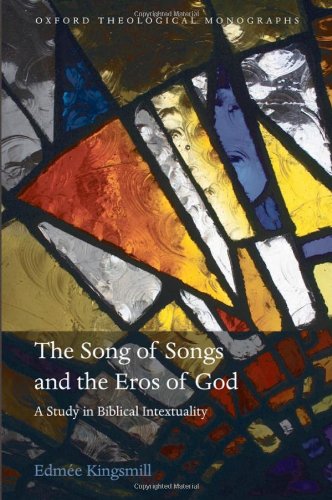Daniel McClellan has been following and contributing to our discussion of Genesis 1 on his own blog and today posted some thoughts on where he places Genesis 1.
In my mind, contextualization is one of the best interpretive keys in questions like this. The more we know about the context into which the author presents this text the better we should be able to evaluate their intentions, assumptions, and dogmas. I see Gen 1:1–2:3 as a later recasting of Gen 2:4–25. Gen 2 is also included in the final redaction so as not to entirely supplant what was most likely an established and canonical (so to speak) version of creation. Gen 2 is more compact and makes no mention of the creation of the earth, just the development of life from the dust of the earth. The prioritization of water alludes to storm god imagery, which probably ties it firmly to a Syro-Palestinian provenance, where an explicit cosmogony is also lacking. Gen 1 includes a cosmogony based on separation that plays off of Assyro-Babylonian literary devices.
Daniel goes on to elaborate in a similar vein. I will not engage with his thoughts too much at this time, it does take us in a direction that is quite different from where I hoped to go at the moment. I certainly agree that we need to try and understand original contexts and intended audiences of an audience, in so far as we are able. I do not, however, have anything like Daniel’s confidence that we can say with any degree of certainty what was the author’s context.
In this first paragraph alone, for example, Daniel makes a number of assumptions and deftly leaps from one to the other. We have both a Syro-Palestinian provenance with Assyro-Babylonian influence. Later he tells us that the more transcendent image of God found in Genesis 1 “squares with the universalization of God following the collapse of Jerusalem and foreign rule.” And so on in a similar pattern. This leads Daniel to make certain observations about Genesis 1 as a post-exilic text responding to the destruction of the Temple and an assertion that God is good.
While all of these suppositions may be true, none can be proven on the available evidence. Furthermore, to base our interpretations upon hypothetical reconstructions (well, they are real reconstructions, but they are hypothetical) provides us with no certainty of getting closer to understanding the text. Rather we have an understanding of the text as read through the reconstructed context.




4 thoughts on “Genesis 1 – Creating a biblical context”
Hey, thanks for the response, Chris. Yeah, my perspective is definitely far from easily provable. I suppose it would rest on a slightly more solid foundation if I filled in all the gaps, but that’s a big post. Much of it has been said several times before, though. Von Rad, Westermann, and Schmid a ways back, and David Carr, Stefan Paas, and Walter Brueggemann more recently, have posited similar ideas about the origins of these texts. I figured it was a bit of a tangent, though. I will zoom in a little more on a couple statements at a time in future posts.
Thanks for the interesting discussion, and for keeping me honest. It is much appreciated.
Thank you Daniel. I do realize that you were not presenting anything particularly new (your reference for a “traditional” post-exilic date kind of gave that away ;-)) but many of other scholars’ reconstructions are not very well proven either. It is simply a lack of evidence. That being said, I am not arguing for a Mosaic authorship. Your post focused upon understanding context to aid our interpretation and I simply wanted to point out that with respect to these texts demonstrating context is highly problematic. We must find another path into the text.
Two issues of context I’d like to see discussed are:
1. Why must the six days be 24 hours apiece, as some insist.
2. Why DID God take 6 days to create the earth? Why didn’t he just speak and have it all instantly formed in one breath? Is there a cycle of creation that is necessary, or was God experimenting along the way? Is God omnipotent enough to create all things in one shot, or must he create a little at a time, because he isn’t as omnipotent as some think?
Thanks Rameumptom. I am not sure I will spend any time on the 24 hour day other than to say יום is יום. There is no evidence to suggest that a “day” means anything other than the period of time we know of as a day.
Now your second question is very interesting and I think I will consider some of those points in a future post but at the moment I would suggest that the 6 days are present in the story because of symmetry.